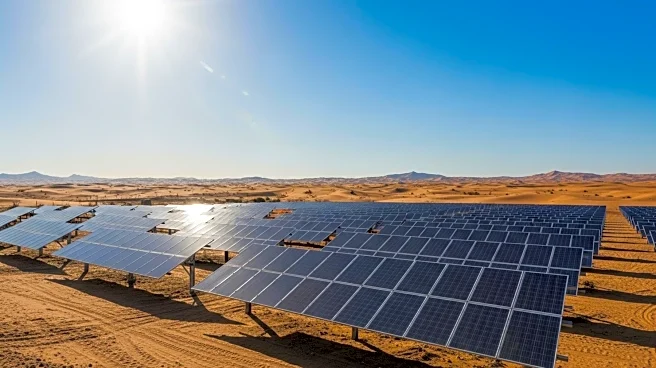What is the story about?
What's Happening?
China's desert solar parks are contributing to ecological changes by cooling soil, slowing wind, and supporting plant growth. These solar panels, particularly in Qinghai's Gonghe Photovoltaic Park, have been observed to create cooler, damper conditions under the panels compared to the surrounding desert. This environment supports stronger vegetation and healthier soils, as recorded in long-term field studies. The panels shade the ground, reducing heat and evaporation, which benefits plant and microbial communities. The International Renewable Energy Agency highlights the importance of site design, including module height and row spacing, to optimize these effects.
Why It's Important?
The ecological benefits of China's solar parks demonstrate a potential model for renewable energy projects worldwide. By improving soil moisture and temperature conditions, these parks can enhance local biodiversity and stabilize desert environments. This approach aligns with the Intergovernmental Panel on Climate Change's view that renewable energy projects can offer land and water co-benefits. The success of these projects could influence global renewable energy strategies, encouraging similar developments in other arid regions, potentially aiding in climate change mitigation and ecological restoration.
What's Next?
Continued monitoring and adaptive management are crucial for the long-term success of these solar parks. Scientists emphasize the need for ongoing data collection to understand the full impact of these installations on local ecosystems. Responsible development practices, such as tracking biodiversity and soil health, are recommended by the United Nations Environment Programme. These efforts will ensure that the ecological benefits are sustained and can be replicated in other regions, contributing to global environmental goals.
Beyond the Headlines
The solar parks' ability to foster ecological resilience highlights the intersection of technology and environmental stewardship. This development raises questions about the broader implications of renewable energy projects in fragile ecosystems. It underscores the importance of integrating ecological considerations into energy infrastructure planning, potentially leading to new standards for sustainable development.
















